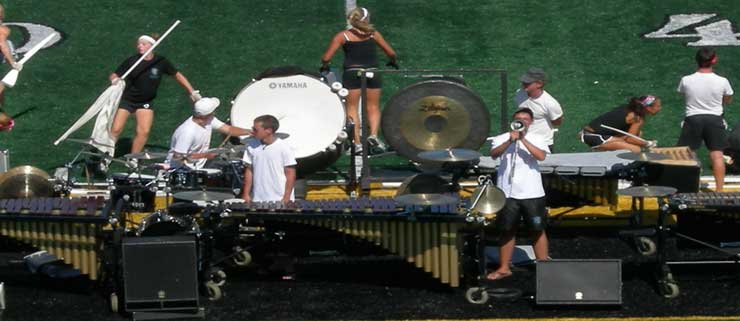.jpg) Do you remember all of various learning theories and their creators? Most teachers subscribe to only one or two of these theories and leave the rest behind. However, we can all benefit from a quick refresher course in the basic ideas of Piaget, Steiner, Montessori, Mason, Holt, and Gardner. Check out this article for a brief explanation of each theory.
Do you remember all of various learning theories and their creators? Most teachers subscribe to only one or two of these theories and leave the rest behind. However, we can all benefit from a quick refresher course in the basic ideas of Piaget, Steiner, Montessori, Mason, Holt, and Gardner. Check out this article for a brief explanation of each theory.
Jean Piaget and Cognitive Development
He proposed that children go through several distinct stages of cognitive growth. First comes the sensorimotor stage (birth to two years), during which the child learns primarily through sensation and movement. At the pre-operational stage (ages two to seven), children begin to master symbols such as language and start to be able to form hypotheses based on past experiences. At the concrete operational stage (ages seven to eleven), children learn to generalize from one situation to similar ones, although such reasoning is usually limited to their own concrete experience.
Finally, at the formal operational stage (eleven years older), children can deal with abstractions, form hypothesis and engage freely in mental speculation. Although the rate at which children progress through the stages varies considerably, the sequence of stages is consistent for all children.
Therefore, to be appropriate and effective, learning activities should be tailored to the cognitive level of the child.
Rudolf Steiner and the Waldorf Schools
Steiner divided children's development into three stages: to age seven, children learn primarily by imitation; from seven to fourteen, feelings and emotions predominate; and after age fourteen, the development of independent reasoning skills becomes important. Waldorf education tends to emphasize arts and crafts, music, and movement, especially at younger ages, and textbooks are eschewed in favor of books the students make for themselves. Waldorf theories also maintain that the emphasis should be on developing the individual's self-awareness and judgment, sheltered from political and economic aspects of society until well into adolescence.
Montessori and the Prepared Environment
Italian physician Maria Montessori's work emphasized the idea of the prepared environment: Provide the proper surroundings and tools, so that children can develop their full potential. Montessori materials are carefully selected, designed to help children learn to function in their cultures and to become independent and competent. Emphasis is on beauty and quality, and that which confuses or clutters is avoided: Manipulative are made of wood rather than plastic tools are simple and functional, and television and computers are discouraged.
Charlotte Mason: Guiding Natural Curiosity
Charlotte Mason was a nineteenth-century educator advocated informal learning during the child's early year contrast with the Prussian system of regimented learning then in vogue. She recommended nature study to develop both observational skill and an appreciation for the beauty of creation and extended that approach to teaching history geography through travel and study of the environment rather than as collections of data to master. She felt children learn best when instruction takes into account their individual abilities and temperaments, but she emphasized the importance of developing good habits to govern one's temperament and laying a solid foundation of good moral values.
Holt and Unschooling
Educator John Holt wrote extensively about school reform in the 1960s. Although he originally proposed the word "unschooling" simply as a more satisfactory alternative to "homeschooling." Unschooling now generally refers to a style of homeschooling, in which learning is not seperated from living, and children learn mainly by following their interests. Children learn best, he argued, not by being taught, but by being a part of the world, free to most interests them, by having their questions answered as they ask them, and by being treated with respect rather than condescension.
Gardner and Multiple Intelligences
Psychologist Howard Gardner argues that intelligence is not a single
unitary property and proposes the existence of "multiple
intelligences." He identifies seven types of intelligence: linguistic,
musical, logical-mathematical, spatial, bodily kinesthetic,
interpersonal, and intrapersonal. Because each person has a different
mix of these intelligences, learning is best tailored to each
individual's strengths, rather than emphasizing the linguistic and
logical-mathematical approaches traditionally used in schools. A bodily
kinesthetic learner, for instance, might grasp geometric concepts
presented with hands-on manipulative far more easily than she would if
they were presented in a more traditionally logical, narrative fashion.
A teaching approach that recognizes a variety of learning styles might
encourage many individuals now lost by conventional methods.
About the Author
Joshua Poyoh is the creator of http://homeschoolingreport.com. For more information on homeschooling resources , check the articles at http://homeschoolingreport.com







 Scroll down to view the comparison chart of over a dozen different portable digital audio recorders.
Scroll down to view the comparison chart of over a dozen different portable digital audio recorders.